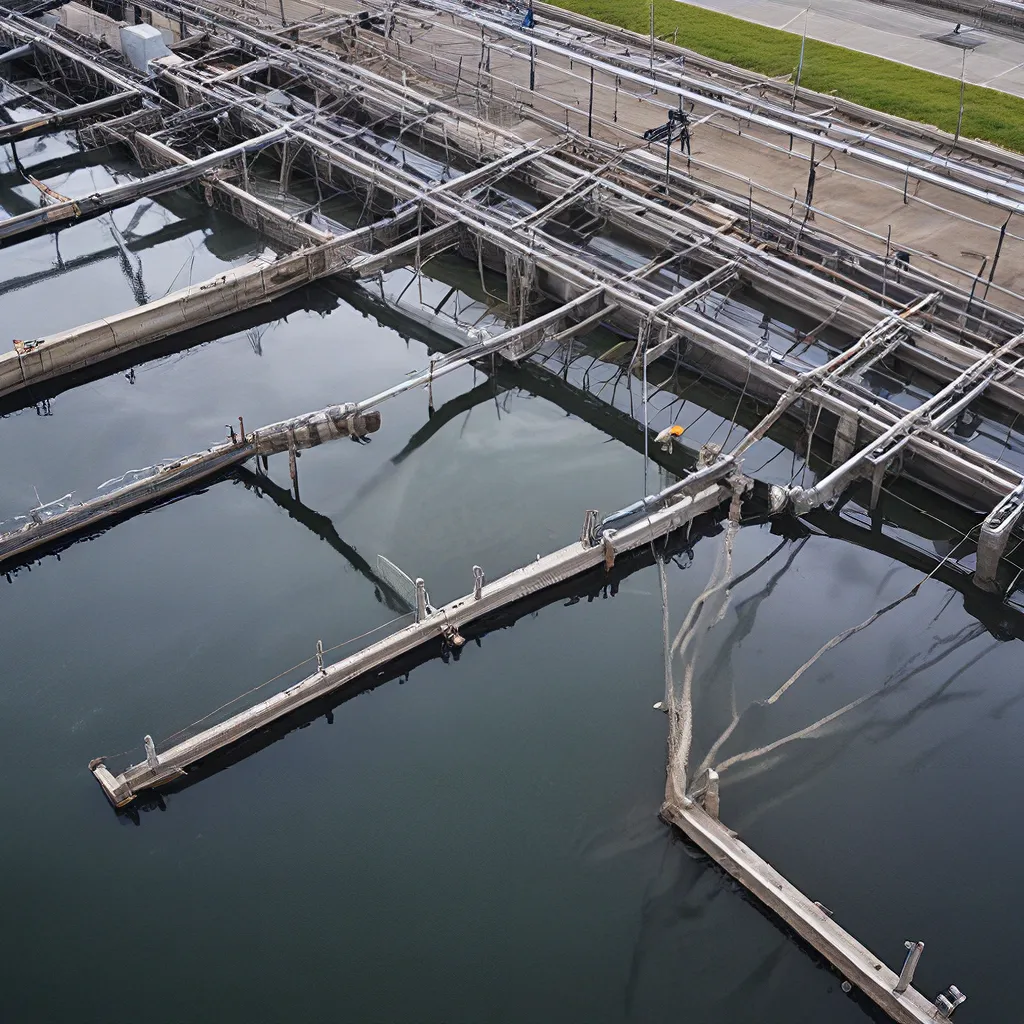
As a seasoned professional in the wastewater treatment industry, I’ve witnessed firsthand the profound impact that digital transformation can have on optimizing operations. Gone are the days when wastewater management was solely reliant on manual processes and outdated technologies. Today, we’re on the cusp of a remarkable revolution, one that’s reshaping the way we approach this critical infrastructure.
Embracing the Digital Twin
At the heart of this transformation lies the digital twin – a powerful tool that’s capturing the attention of wastewater utilities across the globe. Think of it as a virtual replica of your physical wastewater treatment system, a digital counterpart that allows you to simulate, analyze, and optimize every aspect of your operations.
By leveraging the power of data, advanced analytics, and artificial intelligence (AI), the digital twin provides real-time visibility into your system’s performance. Gone are the days of relying on guesswork or outdated information. With the digital twin, you can access a wealth of insights that empower you to make informed decisions, reduce costs, and enhance efficiency.
German utilities, for instance, have been early adopters of this technology, using digital twins to optimize their treatment plant performance and reduce energy consumption by up to 30% while maintaining regulatory compliance.
Optimizing Treatment Processes
One of the key areas where the digital twin shines is in the optimization of treatment processes. By integrating with your existing Supervisory Control and Data Acquisition (SCADA) systems, the digital twin can provide real-time data on influent loads, chemical usage, and energy consumption.
Take the example of EWE WASSER GmbH, a German utility that partnered with Xylem to deploy a treatment system optimization solution. This solution, part of the Xylem Vue digital solutions portfolio, leveraged machine learning to create models of the carbon, nitrogen, and phosphorus elimination processes. As a result, the Cuxhaven treatment plant was able to reduce aeration energy usage by 30%, corresponding to 12 million kWh annually, all while ensuring regulatory compliance.
Unlocking Energy Efficiency
Energy efficiency is another area where the digital twin can make a significant impact. By integrating with your plant’s energy management systems, the digital twin can identify opportunities to optimize energy consumption, reducing your carbon footprint and operational costs.
Schneider Electric’s blog highlights how global water utilities have the potential to slash their greenhouse gas emissions by up to 50% by adopting digital solutions like smart pumps and leak detection sensors.
Fostering Collaboration and Innovation
The digital transformation of wastewater treatment goes beyond just technology. It’s also about fostering a culture of collaboration and innovation within your organization.
By empowering your teams with data-driven insights, the digital twin can help break down silos and promote cross-functional cooperation. Operators, engineers, and managers can work together to identify and address issues, optimize processes, and drive continuous improvement.
Furthermore, the digital twin can serve as a platform for innovation, allowing you to test and deploy new technologies, processes, and business models. This agility and adaptability are crucial in an industry that’s rapidly evolving to meet the challenges of a changing climate and evolving regulatory landscape.
Navigating the Digital Transformation Journey
I’ll admit, the prospect of digital transformation can be daunting for some wastewater utilities. The sheer volume of data, the complexity of integrating new technologies, and the need for specialized expertise can seem overwhelming.
However, the rewards of embracing this transformation far outweigh the challenges. Tetra Tech’s digital water solutions have demonstrated the potential for increased profitability, enhanced sustainability, and improved compliance across the industry.
The key is to approach the digital transformation journey with a strategic mindset, one that’s focused on your unique needs, constraints, and long-term goals. At Alpha Wastewater, we’ve helped countless utilities navigate this path, providing the expertise, tools, and support needed to unlock the full potential of the digital twin and other transformative technologies.
Embracing the Future, Together
As we look to the future, I can’t help but feel a sense of excitement and optimism. The wastewater industry is on the cusp of a remarkable transformation, one that will redefine how we manage this critical resource.
By embracing the power of digital technologies, we can optimize operations, reduce environmental impact, and enhance the overall resilience of our wastewater systems. It’s a future that’s well within our reach, but it will take a collaborative effort, one that involves utilities, technology providers, and the broader community.
So, let’s embark on this journey together, leveraging the digital twin and other transformative tools to build a more sustainable, efficient, and resilient wastewater future. The possibilities are endless, and the time to act is now.